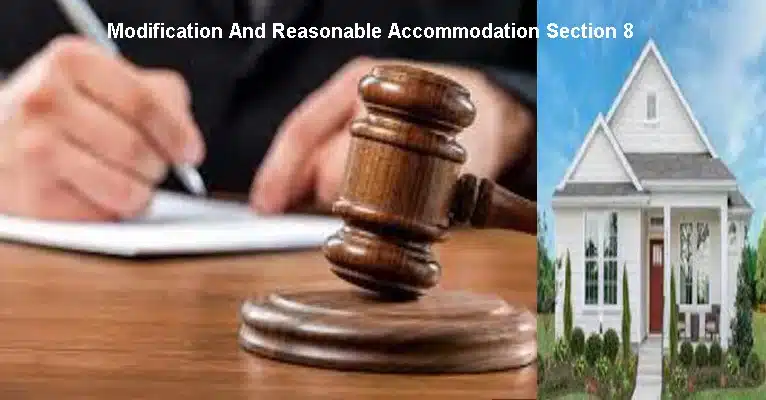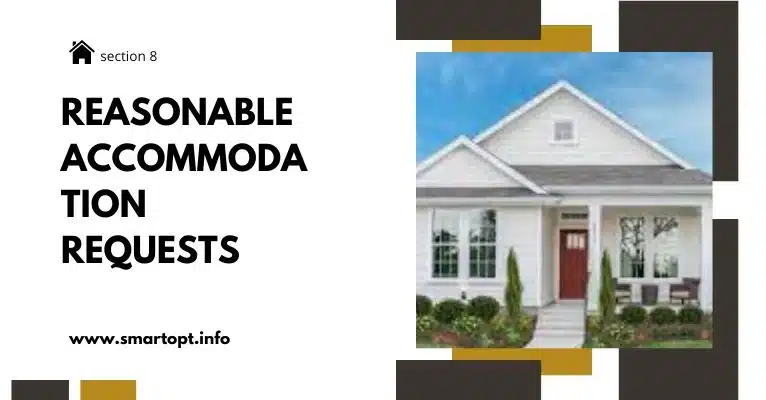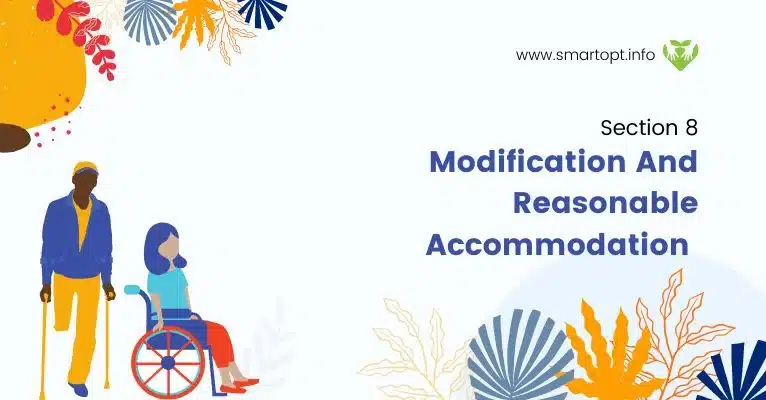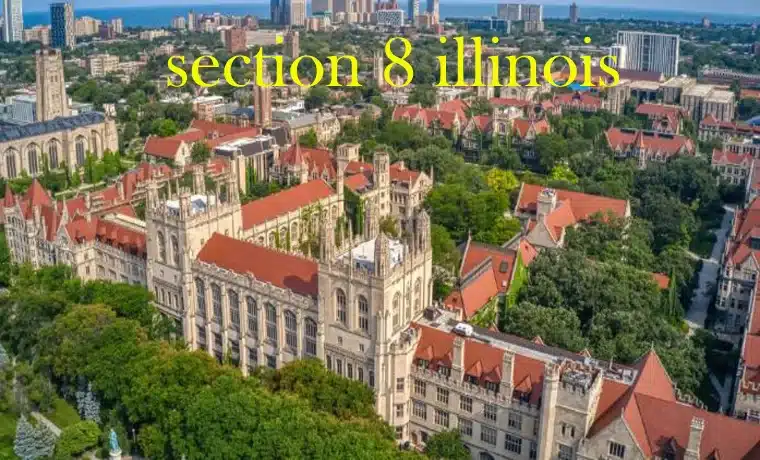Modification And Reasonable Accommodation Section 8
Section 8 is very important to understand for both landlords and tenants and protect their rights. The modification and reasonable accommodation also work with section 8.
The Landlord’s Role
The landlord’s responsibility is to provide safe and secure houses to the voucher holders if landlords participate in the housing voucher program. They get a percentage of rent from the government.
Modification vs Reasonable
Modification Requests
Modifications?
Modification is very important especially for disabled people to get safe and secure rental houses/apartment and Section 8 allow and asks from the landlord.
Tenant Responsibilities
The landlords and Tenants both are responsible for modification whether tenants request to modify the costs. This is the legal way in the section.
Reasonable Accommodation Requests
Reasonable
This is helpful for disabled people to get equal rights to live in a safe and secure house so modification policies and procedures help to get equality.
The Landlord’s Duty
To help disabled persons and provide accommodations is their fundamental right and Landlords must follow the rules. The landlord does not allow wild animals in that place where disabled place and leaves space between so that they can live comfortably.
Legal Implications

Fair Housing Act
The Fair Housing Act gives equal rights to citizens without discrimination so it’s no matter their color, religion, family status, religion, or disability. The law is the same for all and landlords cannot discriminate against tenants.
Legal Protections
The legal protection under section 8 against the landlord is any violation, you can complain to HUD and need a lawyer for your rights. The program protects tenants’ rights.
Qualifying Disabilities
Here are eligible disabilities for reasonable accommodation.
Physical Disabilities (: Physical impairments, such as mobility issues, amputations, or chronic health conditions,
Visual Impairments: Individuals with visual and blindness.
Hearing Impairments: Deaf or hard of hearing including TTY devices or sign language interpreters.
Mental Health Disabilities (H1): depression, anxiety, bipolar disorder, and schizophrenia.
Cognitive Disabilities: cognitive function, such as intellectual.
Chronic Illnesses: HIV/AIDS, multiple sclerosis, and cancer are eligible.
Substance Use Disorders: Individuals in recovery from substance use disorders are covered under the program.
Developmental Disabilities: Down syndrome and cerebral.
Psychiatric Disabilities: Post-traumatic stress disorder (PTSD) or obsessive-compulsive disorder (OCD.
Neurological Disabilities ): Disorders affecting the nervous system, such as epilepsy or Parkinson’s disease, qualify.
Sensory Disabilities: Sensory processing disorders and sensory.
Speech and Language Disorders: Conditions affecting communication, like aphasia or stuttering.
Autoimmune Disorders: Conditions like lupus, rheumatoid arthritis, and Crohn’s disease are eligible.
Learning Disabilities: Impact learning, such as dyslexia or ADHD, is recognized.
Orthopedic Disabilities: Musculoskeletal disorders and disabilities affecting bones and joints.
Understanding the Distinction: Reasonable Accommodation vs. Reasonable Modification

Reasonable:
This gives rights to a disabled person to get a safe and secure house for living, accessible parking spaces, or adjust lease term for disabled tenants. Reasonable Modification:
A reasonable modification is for disabled persons or families to provide a suitable pace including installing a grab bar, a doorway for wheelchairs, or adjustment to kitchen counters for specific disabled needs..
Key Distinction:
The main point is to provide property rights to disabled tenants person/families and safety.
It addresses policy and service adjustments while reasonable modification deals with physical changes to the living environment.
How to Write Reasonable Accommodation Letter For Housing?
When requesting for housing due to a disability, it’s crucial to compose a well-structured and persuasive letter.
Begin with a Polite Salutation: Address the recipient professionally and courteously.
Introduce Yourself: Write your name, contact information, and your current housing situation.
Explain Your Disability: Briefly describe your disability and how it affects your ability to use or enjoy the housing.
Specify the Request: Clearly state the accommodations you are requesting for.
Provide Supporting Information: Attach the entire relevant documentation and doctor’s report.
Explain the Necessity: Detail why it is necessary.
Highlight Legal Protection: Mention the relevant fair housing laws and your rights.
Propose a Solution: Tell why it is important.
Conclude Graciously: Express appreciation for theirs.
Proofread and Edit: Clear everything before sending.
Conclusion
You must have some knowledge about your rights so that you can follow rules and laws according to the housing program, whether your housing rights are protected, or what you should do for your rights.
Frequently Asked Questions
1. What is Section 8 housing?
This is a federal program to provide rental assistance to low–income people.
3. Are landlords required to make modifications for disabled tenants under Section 8?
No, but the landlord but consider modification requests.
4. What is the Fair Housing Act, and how does it relate to Section 8?
The Fair Housing Act prohibits housing discrimination, including discrimination against tenants with disabilities in the program.
6. Can landlords deny reasonable accommodation requests?
Yes, but they can demonstrate an undue burden. Otherwise, obligated to provide.
8. Where can tenants file complaints if they believe their Section 8 rights have been violated?
Tenants can file complaints with the U.S. Department of Housing and Urban Development (HUD) or seek legal assistance if their rights have been violated.








4 Comments